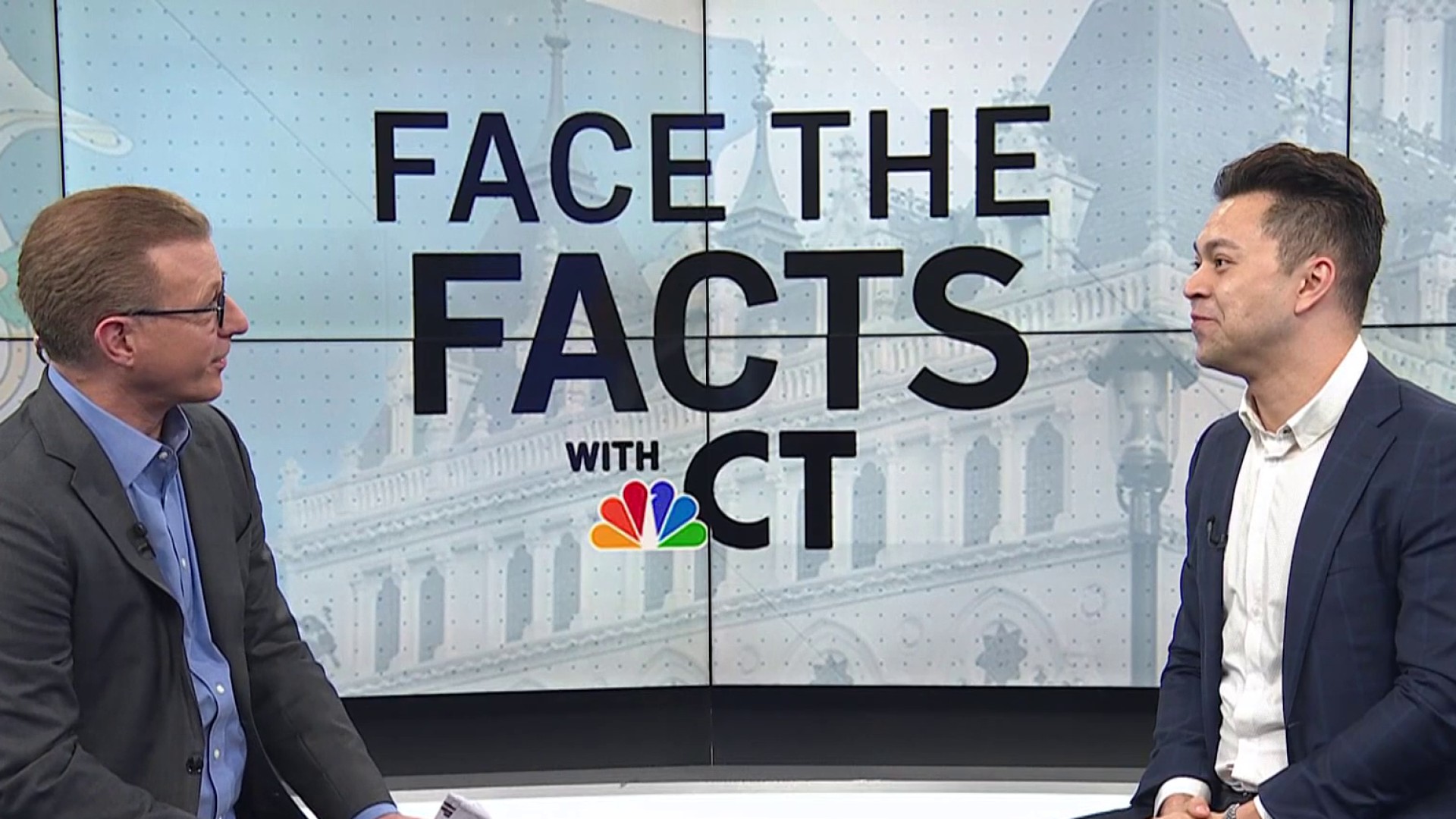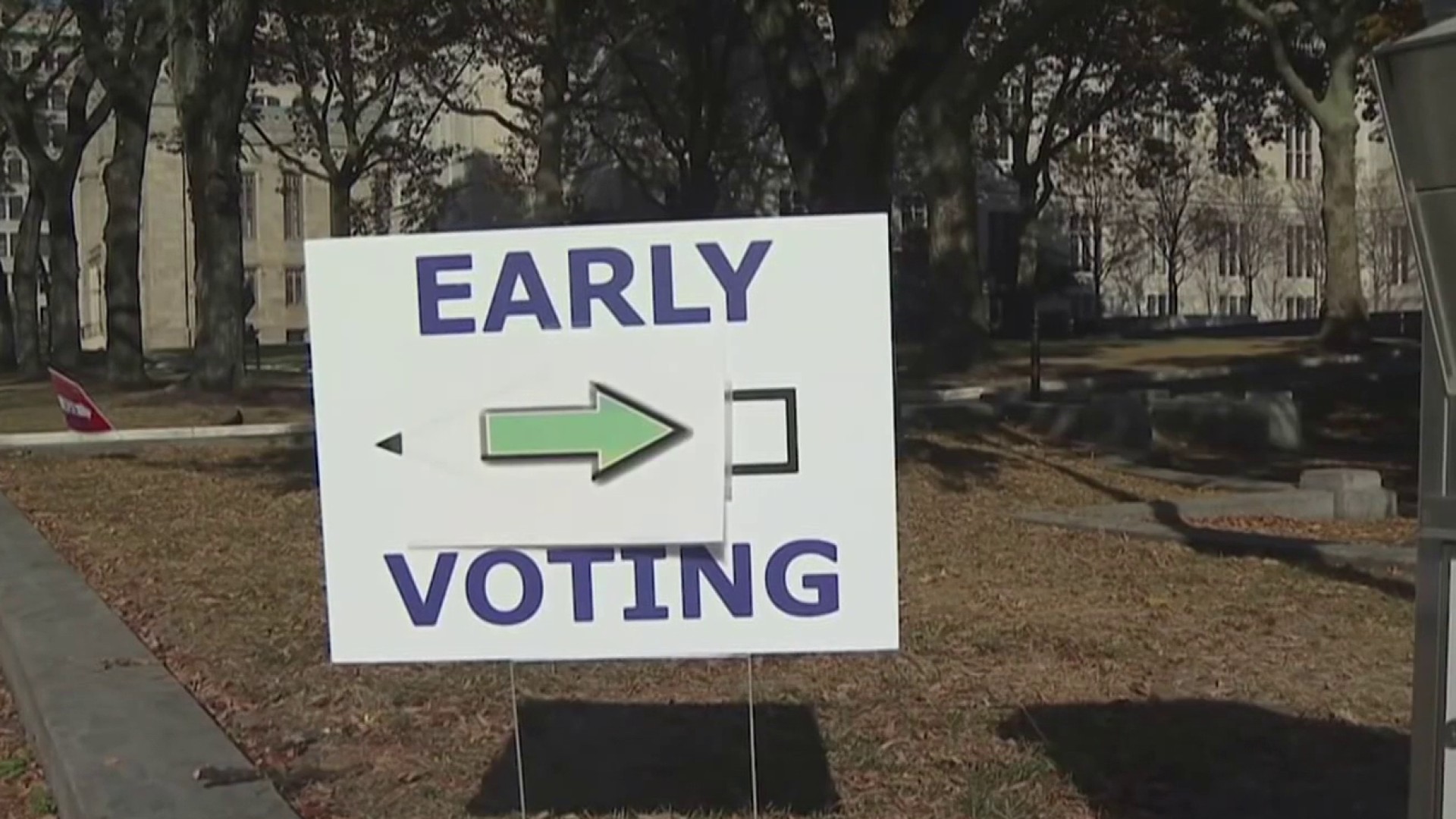Inflation, skyrocketing utility rates, low housing stock - all of those things helped to send rental rates for apartments and homes through the roof recently.
Some studies show rent is up anywhere from 10 to 17%. Other tenants have told NBC Connecticut that their rent was up 50%.
There are bills before the state legislature that could possibly cap rent increases at 4%, but would that actually help tenants? And how fair is that to the property owners who have bills to pay as well?
Senator Rob Sampson (R-Wolcott), who is also a ranking member of the Housing Committee, spoke with Mike Hydeck about how he opposes a rent cap.
Get top local stories in Connecticut delivered to you every morning. Sign up for NBC Connecticut's News Headlines newsletter.
Mike Hydeck: First question. Should state government be involved when it comes to regulating rent contracts between a landlord and a tenant, do you think?
Rob Sampson: Absolutely not. In America, you know, contracts, private contracts between adult citizens, should be sacred. And the market should be determining the value of rents. And I believe it's the government's involvement that has caused the problem that we're now facing, and that they propose to fix.
Mike Hydeck: So you said at a hearing this week that you believe the rent cap proposal put forth by Senator Winfield and others isn't legitimate. Can you elaborate?
Face the Facts
Face the Facts with NBC Connecticut goes beyond the headlines, asking newsmakers the tough questions, giving an in-depth analysis of the big stories.
Rob Sampson: I don't remember using those words. But I suppose that's one way you can put it. The fact of the matter is that number one, I don't believe it's going to work. The issue that they're trying to solve is that there is a housing shortage in Connecticut. And it just seems to me that it's quite obvious that if you go ahead and you put more impediments on housing providers, you're only going to create a situation where there is less housing. I mean, all you have to do is look at socialist or communist countries through history. You know, those countries decline as production declines because there's no incentive for production. That's why there's bread lines. And if you tell landlords that they cannot make money in the process of offering housing, they're just going to stop doing it. And before that happens, other things will happen. The quality of their rentals will decline. The maintenance will decline. And ultimately, everyone will suffer, including tenants. The best solution is to make doing business as a landlord in Connecticut more attractive, not less attractive.
Mike Hydeck: John Souza, the president of the Connecticut Coalition of Property Owners, who's been here on Face the Facts before discussing this, says government subsidies for renters should be on the table. Is that something you support? Or should there be something else, in your opinion?
Rob Sampson: Well, I'm not a big fan of any type of government subsidy. These are just another mechanism for transfer payments from one part of the population to another. And it's an opportunity for government to create dependence and undermine the marketplace. But that is a superior proposal than to telling landlords that they have to cap their rent increases at some very small amount, two and a half or even 4% is being proposed. And those numbers do not keep up with inflation.
Mike Hydeck: Can this be tackled from another avenue? Maybe going through one of the things that happens is local planning and zoning board says, 'you know what, we don't want high density property here or affordable housing here.' And then they pretty much take it off the table. Even though there are requirements in the state to try to encourage affordable housing, it's proven that it's not working. So should there maybe be a bigger picture way to look at this and kind of hold cities and towns responsible for holding some land or some portion of their city-owned land for affordable housing? How do you tackle it?
Rob Sampson: No, I don't believe that's a viable solution either. The fact of the matter is that we have local government that is elected by the residents close to home. They have their own planning and zoning authorities. They're the ones that determine the policy for their town. If they don't want low income housing in their town, then I don't think the state should force them to. This is just a market-based problem that should find a market based solution. And this is the kind of thing that happens in places like Connecticut and California, and other places where government has run amok and has interfered in the private marketplace. They have chased away producers, providers, businesses and people that would offer housing in this state, while simultaneously trying to attract people that are looking for low income housing, undocumented individuals and you've created a shortage. And now they're going to propose to solve it with more government, which will only create more problems and an even greater shortage. And at the end of the day, Mike, what we're gonna end up with is government housing. And if people were unhappy with the circumstances now, I can tell them that that's going to be worse.
Mike Hydeck: Well, we realize the government housing has had major problems specifically in Hartford, and they haven't been addressed over the years, and they're still working on that. So where do we go to try to create a solution? In some of the hearings we heard you say that, look, 'I want to do something that's solid policy-based here to try to solve this problem.' What do you think we can do?
Rob Sampson: I think we ought to reverse many of the policies that exist currently that are an impediment to property and housing providers. For number one, I mean, in Connecticut, the housing providers live in a hostile environment. The housing court is very, very biased in the favor of tenants. The laws that we have that restrict security deposits hurt both landlords and tenants. For example, in this state where now the the limit is two months security deposit, the governor wants to decrease it to one month. But that not only hurts a landlord's ability to be able to collect enough security deposit to cover potential damage, but it hurts tenants that may have a poor credit or job history and want to get a rent. And sometimes they'll come to the landlord and say, 'I can offer you six months. Can you take me?' And sadly, because there is an impediment to a private contract where you'd have willing partners, the state says no, that transaction can't take place. That's just one example of many things that are preventing the marketplace from functioning, you know, on its own.
Mike Hydeck: So if there's a water leak and it doesn't get fixed, and the tenant is up-to-date on their payments and mold starts to happen, what kind of recourse should they have? How does that, if the landlord is not living up to his or her responsibility, what should happen in that case?
Rob Sampson: Oh, absolutely. I mean, well, that would be a violation of a tenant-landlord agreement. I mean, they have a contract to lease between them. And certainly that agreement is going to include requirement for the landlord to take care of maintaining the property and they should be fined or held accountable by some mechanism, probably a civil mechanism, which involves going to housing court. In Connecticut, we have laws that provide free legal assistance, free lawyers for tenants. Landlords don't get free lawyers, but tenants do, and they can go to the court and they can make a claim against someone. But again, no one here is trying to protect bad landlords. No one wants to see anyone live in a substandard housing situation. I'm the first person that would go after people that fail to maintain their properties. The problem is that that is a private agreement. And no matter what happens, the government should stay out of it except to enforce the legitimacy of that private agreement, not trying to step into that transaction themselves.



